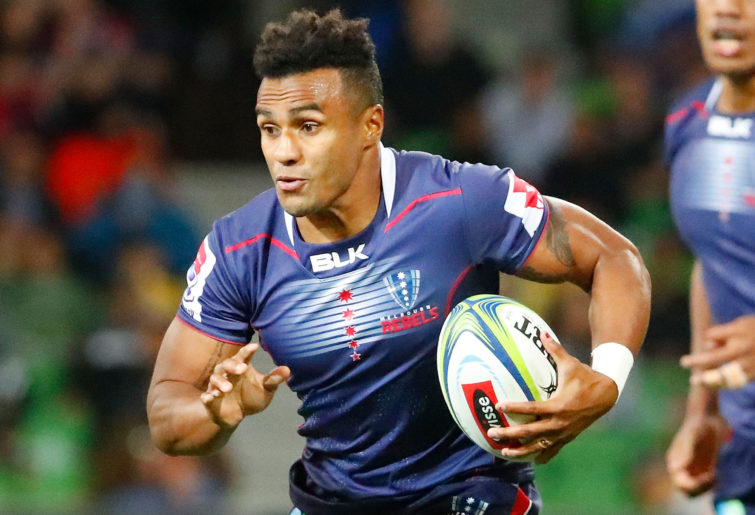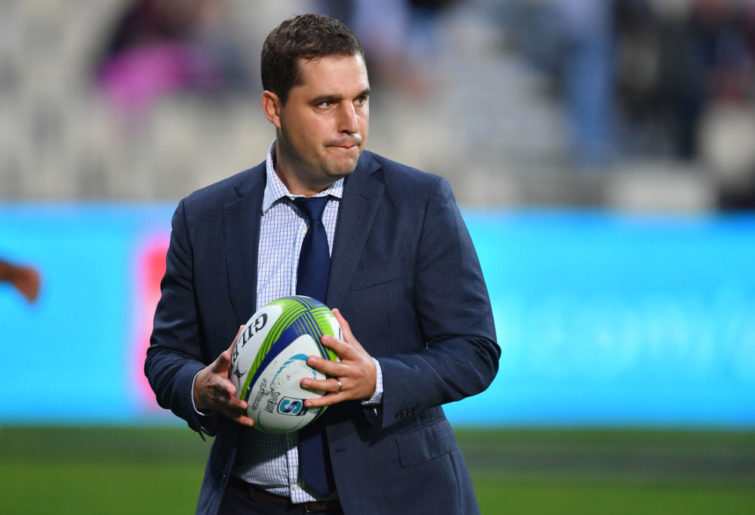Understandably, most discussion about the Rebels’ Super Rugby prospects in 2019 turns towards the players, and whether the Wallaby-laden group can propel the Melbourne side to their first ever finals appearance since joining the competition in 2011.
Scratch below the surface however and it’s clear that joining the elite echelon, or winning the Australian conference, is not just about the merits of individual players but more about the readiness of the whole squad – players and coaches – and indeed the whole organisation.
A glance at the playing list of the imperious Crusaders over recent years reveals a fair sprinkling of champions, but also many unheralded and previously unknown players, plus a few discards from other franchises. It is clear that the design and implementation of superior systems and processes, and the development of an effective organisational culture play crucial roles.
And so it is that the Rebels’ pre-season has less to do with how Will Genia and Adam Coleman have reported in after their Xmas break, but is a complex strategic and logistical exercise, aimed at ensuring readiness for round one against the Brumbies in Canberra on Feb 15th. As well as ensuring that there is sufficient left in the tank for a late-season finals tilt.
Indeed, with the Wallabies’ end of year tour extending into late November, and those players requiring a break from the game before being called into an early-season training camp by Michael Cheika, the Rebels effectively completed half of their pre-season (broken up into three blocks), without a current Wallaby in sight.
None of which fazes coach Dave Wessels. “This year has been much smoother, much more in-depth”, he tells me at the completion of a hot and sweaty morning’s work, which encompassed two busy hours on the track, a shower and light brunch, then a video session looking at, among other things, some of the fine detail around being more ruthless in finishing off in the red zone.
“Obviously, last year we were starting afresh, we had a lot of things to work out and put in place, but this year we’ve also had the benefit of our planning being informed by our end-of-year review process.”
That review process identified work-ons for individual players and coaches that informed a co-ordinated program, which balanced personalised strength and conditioning programs with blending individual players into the team’s method of play.
That style of play is still evolving – not unusual for a team entering only its second season – but Wessels believes that the group has settled on an identity that is both durable enough and flexible enough to withstand the rigours of Super Rugby.
“One important thing to do is to be able to, within the game, recognise what the opposition’s attack and defence is showing you, and to be able to adapt and change what we’re doing accordingly.” He cites as an example the November Test match between England and New Zealand, where a rattled All Blacks side was able to regroup and then re-assert themselves in the second half, with a changed game plan.

(Photo by Scott Barbour/Getty Images)
In terms of structure, the Rebel’s pre-season program comprised three distinct blocks; pre-Xmas, which emphasised a conditioning element, a January block which ramped up the detail and continued evolution of the team’s method of play, then into a final phase of contested training and trial matches.
No Wessels team ever hits the track at anything less than full intensity, but it is the prospect of an upcoming Feb 1st trial match against the Reds, at Ballarat, that will naturally provide a further lift, and, with all players back on deck, provide an opportunity to further develop combinations and familiarity, for new men like Quade Cooper, Isi Naisarani, Luke Jones, Brad Wilkin and others.
Boasting impressive squad depth, I ask to what extent the trial matches are about selection? Wessels replies candidly, “I want the players who haven’t been at the Wallabies camp to make it as difficult as possible. If they do everything we ask of them, if they give everything they have to the contest, then they’ll get game time.”
“Last year I probably wasn’t as true to that as I wanted to be’, he adds. “Occasionally I compromised and I think I learned, probably the hard way, to fully trust my squad.”
It is evident already that high-profile recruit, Cooper, has earned that trust and also the respect of his coach, exhibiting a commanding presence on the training track, quick to offer tips and advice to younger players.
Another early standout is flanker Brad Wilkin, without real opportunity at the Waratahs behind captain Michael Hooper, but who appeals as an intelligent and committed footballer.
Wessels also points to the importance of off-field preparation; “The trial games also provide an opportunity for all of our coaching and logistics staff to streamline how we run ‘match week’, how we become more efficient on away trips and so on. We travel with 35-36 people, most times. That requires a lot of planning around transport, meals, communication etc… and making sure that our on-field performance isn’t impeded by any external issues.”
In that respect the Rebels are in good hands, with Team Director, Tony Thorpe, an experienced campaigner, boasting an impressive CV that lists senior management roles with the All Blacks, Crusaders and Brumbies among his credentials.
Wessels is clearly excited by the team he has assembled around him. There is a palpable sense of fun, blended with everything being done, on and off the field, at pace and with purpose. He singles out Head of Performance, Will Markwick, and newly appointed Tom Dawson-Squibb, for mention; Dawson-Squibb having previously worked for the Sharks, Stormers and South African cricket, already adding value in the mental skills area.

Melbourne Rebels head coach Dave Wessels. (Photo by Kai Schwoerer/Getty Images)
The Rebels lost narrowly in Dunedin in last year’s final round, a result which saw them shut out of the finals, but Rebels fans know that it was their inability to close out their home match against the Waratahs, from a winning position, that cost them most dearly.
“That’s a key area of focus for us”, Wessels explains, with a nod towards Dawson-Squibb. “Growing up as a team, being able to close out close games, making better decisions, learning from our losses, internalising things in a way that we can apply that learning and turn those into improvements.”
The movement of players and coaches around the global marketplace, and the commensurate exchange of information and knowledge, means that it is now harder for clubs to develop and retain IP that is unique. So what is it about the Rebel’s pre-season that will provide them with a competitive advantage over their rivals?
Observing training, it is clear that the Rebels rely less on drills, and straight-out physical conditioning, than other franchises might. Work with ball in hand, in opposed rugby situations, has been a constant feature throughout.
But while there are no sand-hills or army fatigues in sight, don’t expect this side to be found wanting due to lack of conditioning – if the approach echoes bygone days, when players got fit for rugby by playing rugby, science is never far away.
Wessels identifies another point of difference. “We want it known that players come to Melbourne to get better, a wee bit like ‘Pimp My Ride’ if you like. If we can get players to believe that if they come here they will leave a better player, then that obviously helps us in terms of results, but it also becomes a great selling point, where it feeds on itself, and we attract better players to the club.”
If that sounds reminiscent of the Melbourne Storm, it’s not by accident. In a city dominated by AFL, with an earnest but modest local club rugby competition, just like their NRL counterpart, it is critical for the Rebels to provide reasons other than money, for players like Naisarani, Jones and Campbell Magnay, for example, to come to Melbourne.
Heading in the other direction were star player Amakai Mafi and Lopeti Timani, after they were involved in a nasty end-of-season incident in Dunedin.
CEO Baden Stephenson outlines how the back office has also had a busy, but productive off-season. “Our club was bitterly disappointed with a couple of disciplinary issues at the end of last season. Those issues hurt a lot at the time, however it did highlight to us that we were not elite with our standards and behaviours during a year of transition.”
“The introspection and honesty that immediately followed the season led to the formation of a Strategic Review Panel which was superbly chaired by Paul Docherty, which included key stakeholders from the Board, staff, players, Rugby Australia, RUPA and profile business leaders. They identified 16 recommendations which we are well on the way to implementing, and the change in our culture, we believe, is a game changer for us.”
Stephenson eagerly outlines how membership is tracking ahead of last season, and how they have recently secured nine new commercial partnerships on multi-year deals, which is “a reflection of the direction, stability and people at the club.”

The Rebels (Photo by Scott Barbour/Getty Images)
The club is also active in the community; “Off the field I want to see many of the junior and senior Victorian players and their families at AAMI Park supporting Super Rugby and the Melbourne Rebels because they feel a strong connection to the club. It is time to make Melbourne proud of their rugby team and step up as Australia’s youngest franchise”, Stephenson concludes.
So what will all of this mean come round one? Wessels is quietly confident; “There’s no team in the competition that will be ready and able to do everything they want by round one, but in terms of the important things, then yes, I’m happy that we’re well advanced.”
The Rebels improved from 18th place in 2017, to 9th in 2018. By almost every measure, they look to have improved further, and the momentum and trajectory is upwards. Can they provide the spark this year that both Super Rugby and Australian rugby badly needs?






























































































